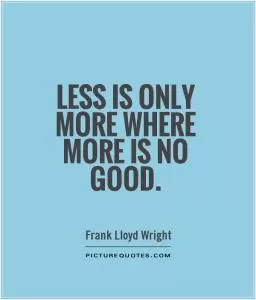If it keeps up, man will atrophy all his limbs but the push-button finger

If it keeps up, man will atrophy all his limbs but the push-button finger
Frank Lloyd Wright, the renowned American architect, was known for his innovative designs that seamlessly blended nature with modern technology. However, he was also a vocal critic of the increasing reliance on technology and its potential negative impact on humanity. One of his famous quotes, "If it keeps up, man will atrophy all his limbs but the push-button finger," reflects his concerns about the dehumanizing effects of technology on society.Wright believed that the rapid advancement of technology was leading to a disconnect between humans and the natural world. He feared that people were becoming too reliant on machines and gadgets, which were making them lazy and complacent. In his view, the push-button finger symbolized the ultimate form of laziness, where people could accomplish tasks with the simple press of a button, without having to exert any physical effort.
Wright's criticism of technology was rooted in his belief that humans were meant to be active participants in the world around them. He believed that physical labor and manual work were essential for maintaining a connection to the natural world and fostering a sense of purpose and fulfillment. By contrast, the push-button finger represented a passive and detached way of interacting with the world, where people were becoming increasingly isolated from their surroundings.
Wright's concerns about the atrophy of human limbs were not just metaphorical. He believed that the overreliance on technology was leading to a decline in physical health and fitness, as people spent more time sitting in front of screens and less time engaging in physical activity. This sedentary lifestyle, he argued, was detrimental to both the body and the mind, leading to a host of health problems and a loss of vitality.












 Friendship Quotes
Friendship Quotes Love Quotes
Love Quotes Life Quotes
Life Quotes Funny Quotes
Funny Quotes Motivational Quotes
Motivational Quotes Inspirational Quotes
Inspirational Quotes